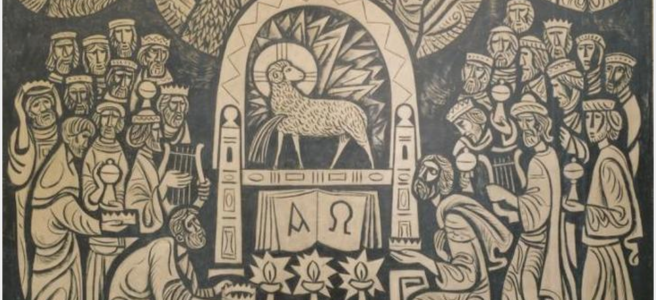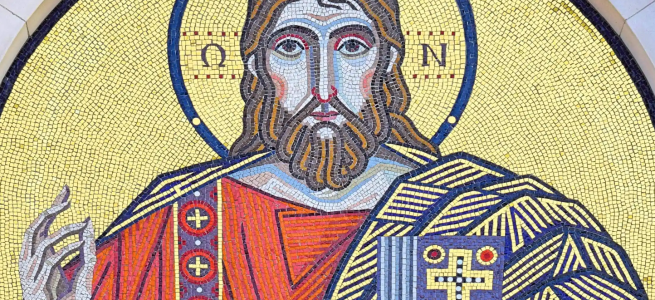Ted Grimsrud—March 28, 2024
The book of Revelation has a pretty bad reputation among many people—not least because it is easily interpreted as portraying quite a bloodthirsty God. And many Christians have affirmed that interpretation. I first decided to study Revelation after hearing a teacher argue against pacifism by claiming that Revelation teaches that divinely initiated violence is part of Revelation’s End-Times scenario. This teacher coupled Revelation’s violence with the violence of the Old Testament stories such as Joshua to argue that sometimes God does want war.
I knew in my heart (though not yet my mind) that the Bible should not be read in such a pro-violence way. So, I decided to look closely at Revelation for myself. I discovered that indeed Revelation may be read in a very pro-peace way. My recent book, To Follow the Lamb: A Peaceable Reading of the Book of Revelation (Cascade Books, 2022), articulates my latest understandings about Revelation’s peace message. In this post and one to follow I will share some of the key ideas in that peaceable reading.
The key step for me was my starting point in reading Revelation. I took very seriously the opening words of the book, “the revelation of Jesus Christ” and read the book expecting it to complement the story of Jesus in the gospels. I was open to be proven wrong about Revelation’s Jesus-linked orientation, but I first wanted to see if indeed Revelation did further Jesus’s own message. That is, I read Revelation asking, “What (if anything) does Revelation teach us about peace?” rather than “What does Revelation teach us about the future?” or “What does Revelation teach us about a violent, pro-war God?” Along with the opening words that refer to Jesus, I also quickly recognized that the key image (in a book full of images, symbols, and metaphors) in the entire book was the image of the Lamb. Clearly, this Lamb image was meant to evoke Jesus and, as I came to recognize, to keep the various visions and imagery anchored in Jesus’s message.
I will develop two aspects of the Lamb image in what follows. In this post I will discuss “the peace of the Lamb.” With the Lamb’s peaceable orientation in mind, I will then turn to “the war of the Lamb” in the next post and show that Revelation’s “war” is actually a struggle for peace on earth that uses thoroughly peaceable methods.









